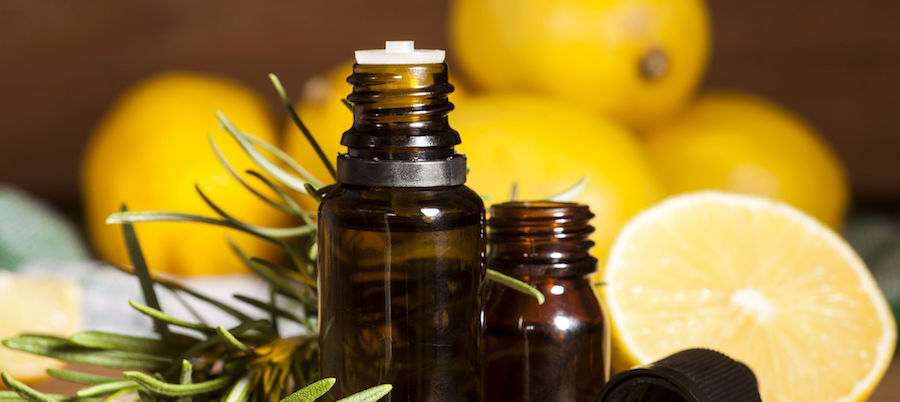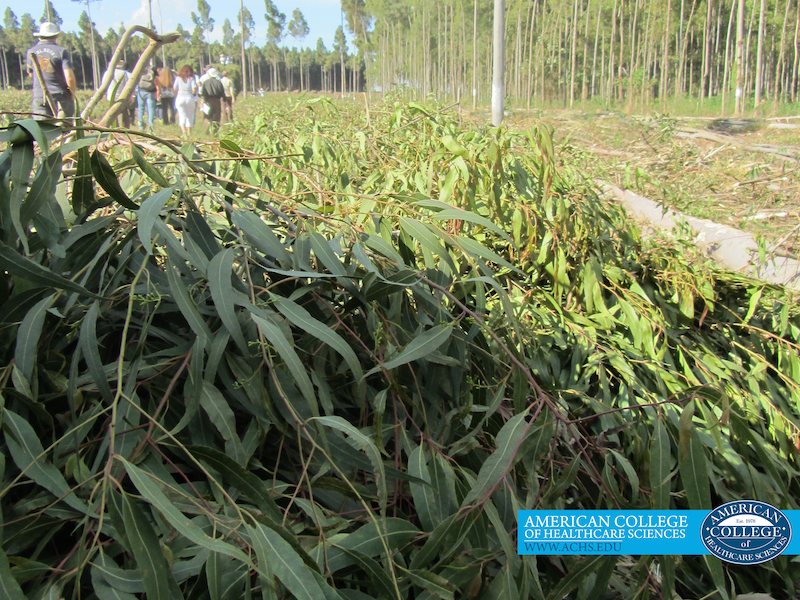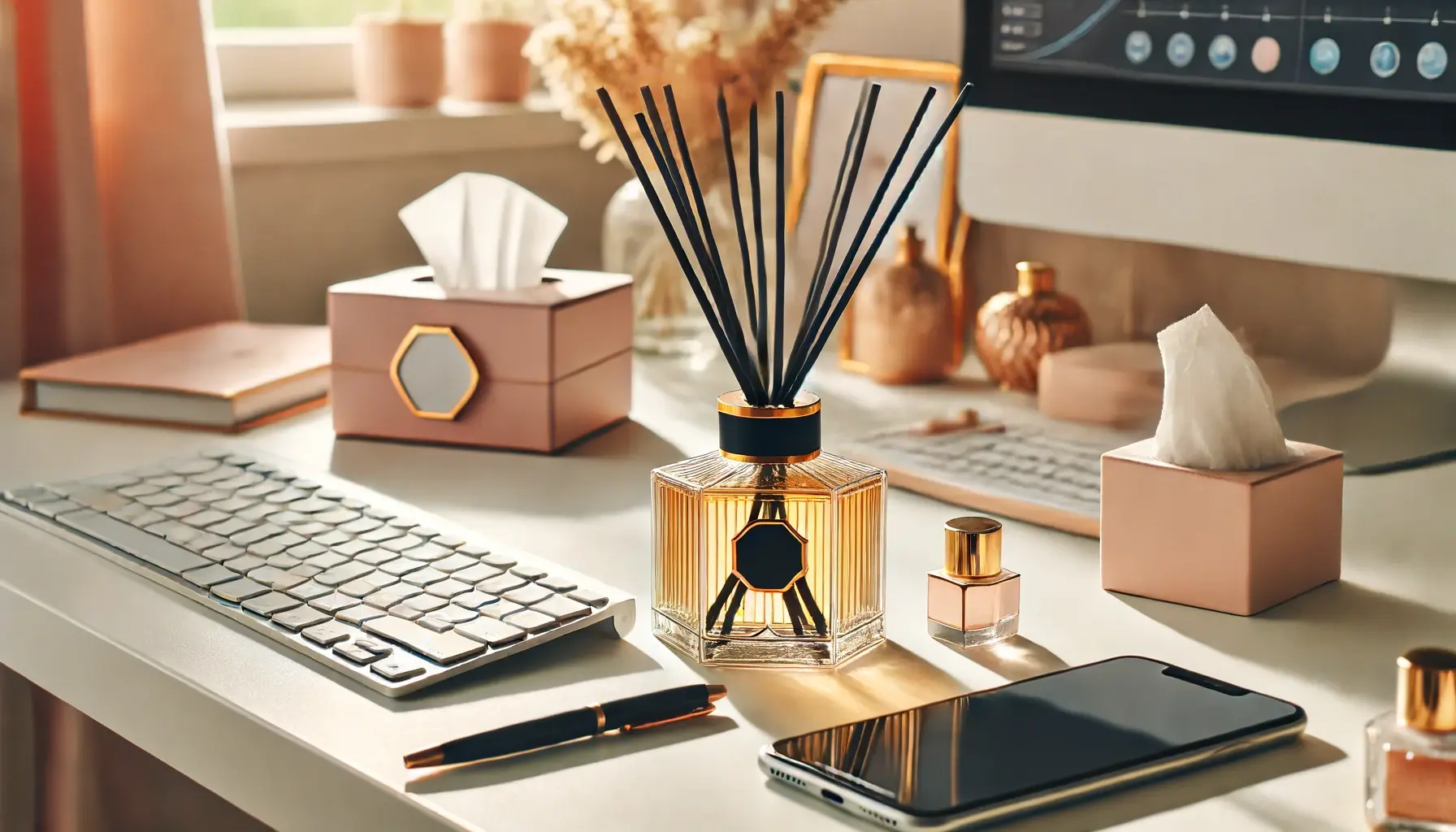When we stop to read the ingredient labels, it’s clear essential oils are used in a lot of skincare products. From cleaners and toners to moisturizers and serums … they’re everywhere! And, while it might be easier to pluck a pretty jar of something from the shelf, what about those other ingredients on the label that you can’t even pronounce?
Whether you’re a purist or just starting to play with natural health and beauty products, DIY is the way to go. They’re clean, green, and mindful. Plus, they’re fun and make great gifts! You can even get the whole family involved for a fun holiday (or anytime!) activity. So, whip up a batch of body oil and make a little extra to share with your besties this holiday season.
You don’t have to have advanced aromatherapy knowledge* to start using essential oils in your DIY skincare. You just need a tried-and-true recipe!
*NOTE: If you are pregnant, breastfeeding, or have any health-related concerns, check with your healthcare provider before using essential oils.
Basic Body Moisture Oil Recipe
Ingredients
- Sweet almond Prunus amygdalus var. dulcis oil: 6 tablespoons
- Jojoba Simmondsia chinensis oil: 1 teaspoon
Add 20 drops of essential oil (try one of the recommended blends below!) to a 2-ounce bottle of Basic Body Moisture Oil. Test on your skin to be sure the aroma strength is to your liking.
Here are a few of our favorite essential oil blends you can choose from and add to your Basic Body Moisture Oil:
Silky Skin Smoothing Oil
- Rosemary Rosmarinus officinalis essential oil: 5 drops
- Lemon Citrus limonum essential oil: 5 drops
- Fennel Foeniculum vulgare essential oil: 4 drops
- Ginger Zingiber officinale essential oil: 2 drops
- Cypress Cupressus sempervirens essential oil: 2 drops
- Juniper Juniperus communis essential oil: 2 drops
Soothing Sweet Relief Oil
- Lavender Lavandula angustifolia essential oil: 10 drops
- Rosemary Rosmarinus officinalis essential oil: 8 drops
- Peppermint Mentha xpiperita essential oil: 4 drops
- Ginger Zingiber officinale essential oil: 4 drops
- Black pepper Piper nigrum essential oil: 4 drops
Muscle Toner Oil
- Grapefruit Citrus paradisi essential oil: 8 drops
- Ginger Zingiber officinale essential oil: 4 drops
- Lemon Citrus limonum essential oil: 3 drops
- Cypress Cupressus sempervirens essential oil: 3 drops
- Juniper Juniperus communis essential oil: 2 drops
More Ways to Play with Essential Oils in Skin Care
Face Oil
Blend 10-15 drops of essential oil such as neroli Citrus aurantium var. amara or immortelle Helichrysum italicum with 1 ounce of jojoba Simmondsia chinensis oil. Store in an amber or blue glass bottle in a cool, dark location. After cleansing and toning, use 2-5 drops and gently rub on face.
Facial Steam
Add 5 drops of essential oil such as eucalyptus Eucalyptus globulus or lavender Lavandula angustifolia to hot water or herbal tea in a wide bowl. Hold your face over the bowl for 10-15 minutes. You can create a tent to trap the steam by holding a towel over your head. For a more comprehensive herbal steam experience, follow these step-by-step instructions in this blog post.
Face Mask
Add 1-2 drops of essential oil such as chamomile Roman Chamaemelum nobile or rose attar Rosa damascena into a mask base like ground oatmeal, brewer’s yeast, or fuller’s earth. For a more comprehensive herbal mask recipe, check out the Berry Beautiful Exfoliating mask instructions here.
Mouthwash
Add 2 drops of essential oil like mastic Pistacia lentiscus var. chia oil or clove Syzygium aromaticum to ½ cup of cooled green tea. Swish in your mouth after eating but do not swallow.
Fun stuff, right? Good news: your holistic aromatherapy education doesn’t have to stop here. You can earn your Certificate in Aromatherapy (CERT Aroma), Diploma in Aromatherapy – Master Aromatherapist, Associate of Applied Science in CAM with an aromatherapy focus, or Master of Science in Aromatherapy with ACHS! You’ll learn how to blend and administer essential oils safely, identify therapeutic uses, name active constituents, use different methods of administration, and understand and explain cautions and contraindications for each of the essential oils studied. Plus, you’ll make a lot of aromatherapy products you can share with your friends, family, and community.
Disclosure of Material Connection: This blog may contain affiliate links. I am disclosing this in accordance with the Federal Trade Commission’s 16 CFR, Part 255: “Guides Concerning the Use of Endorsements and Testimonials in Advertising.
This article is for informational purposes only. It is not intended to treat, diagnose, cure, or prevent disease. This article has not been reviewed by the FDA. Always consult with your primary care physician or naturopathic doctor before making any significant changes to your health and wellness routine.






